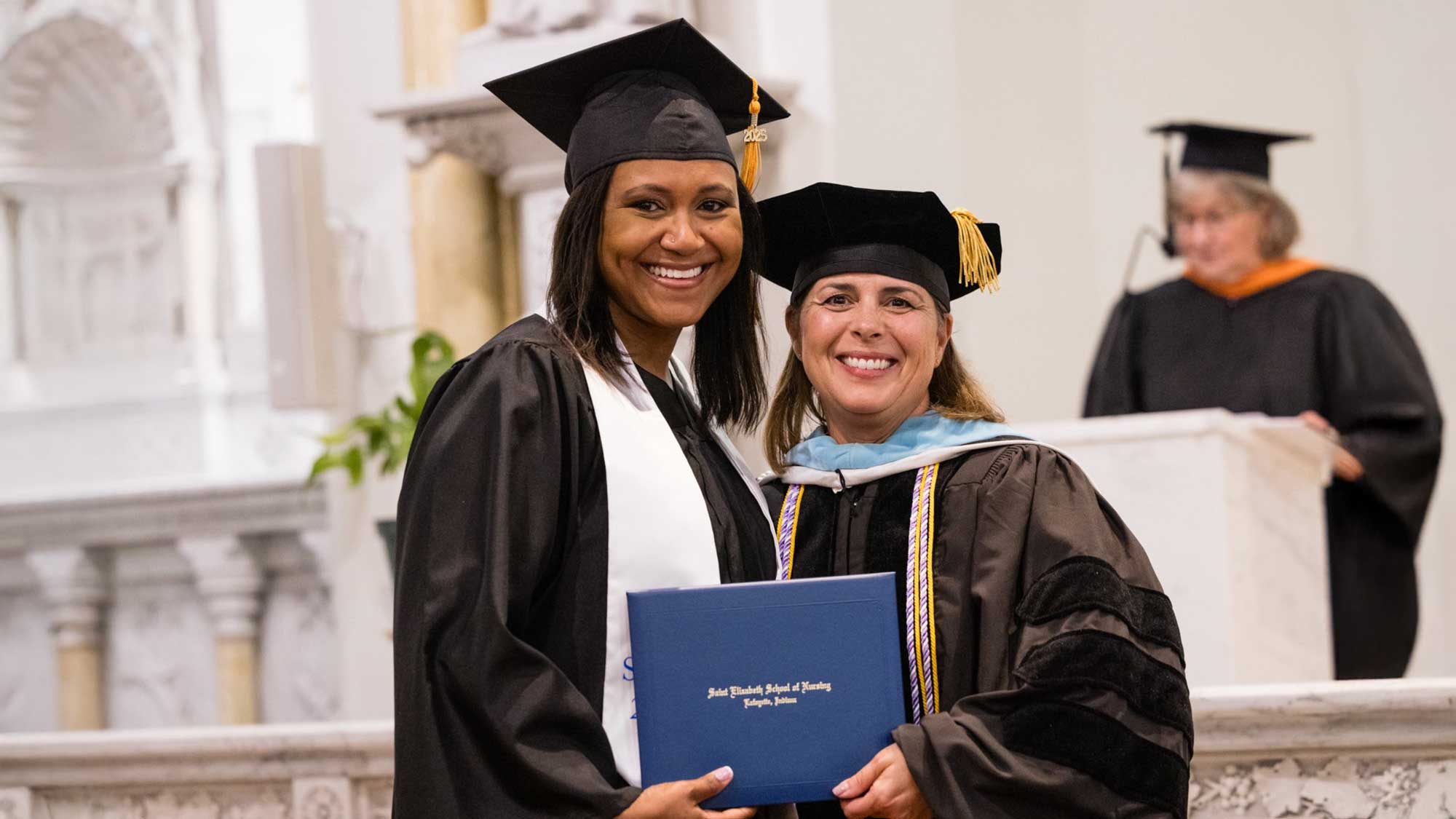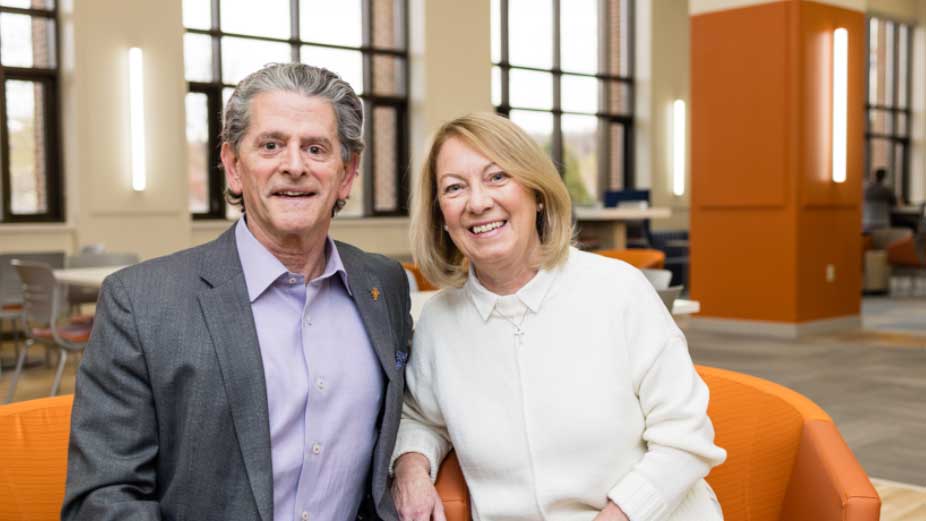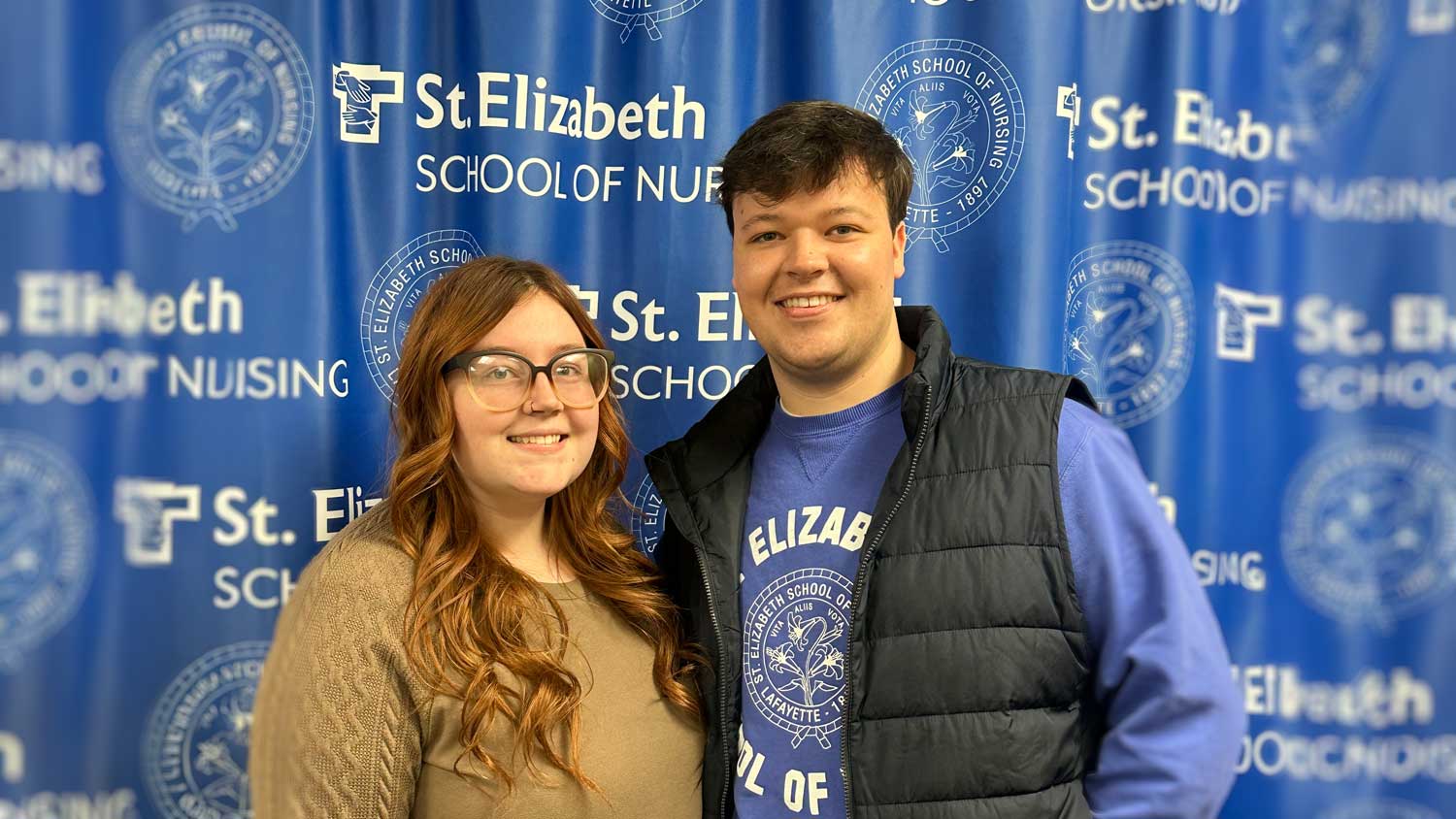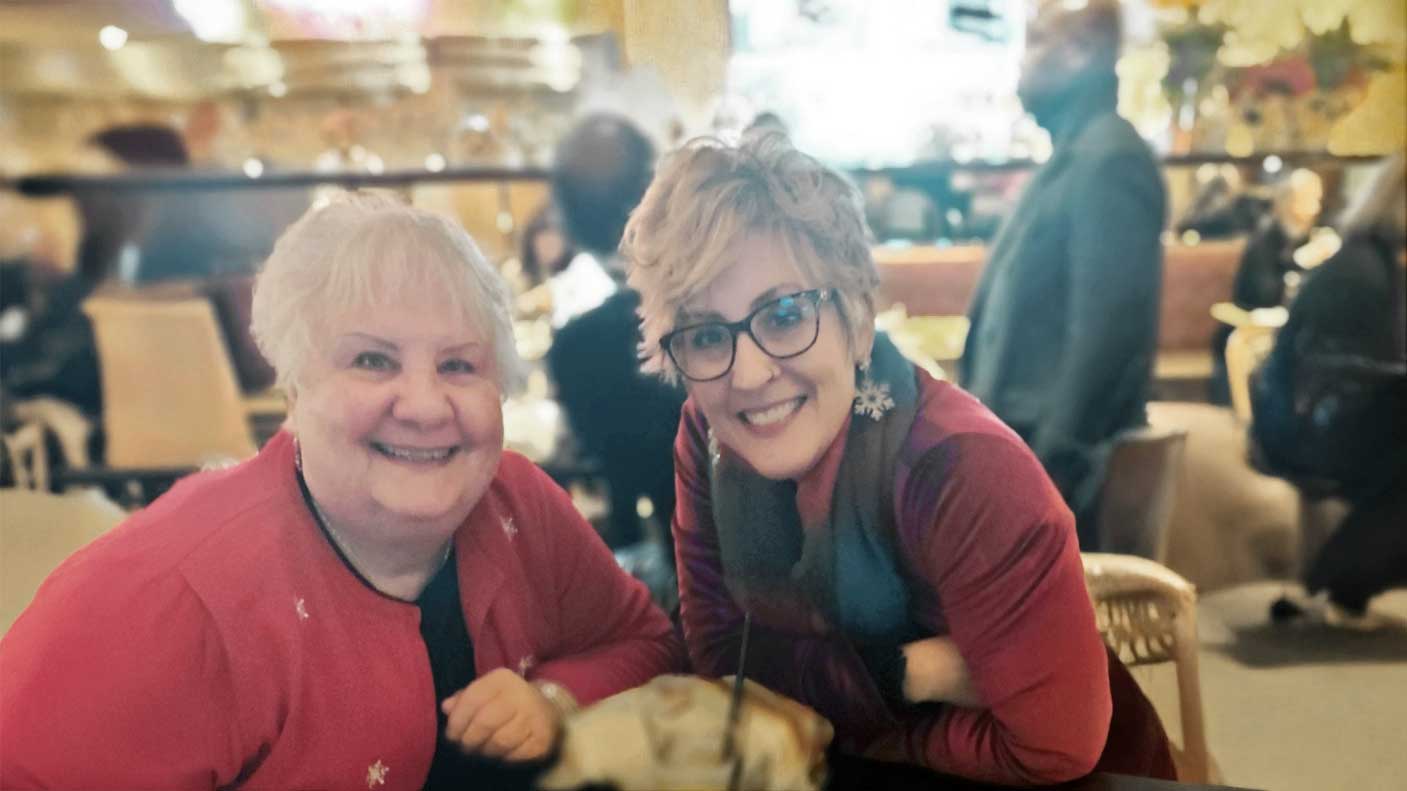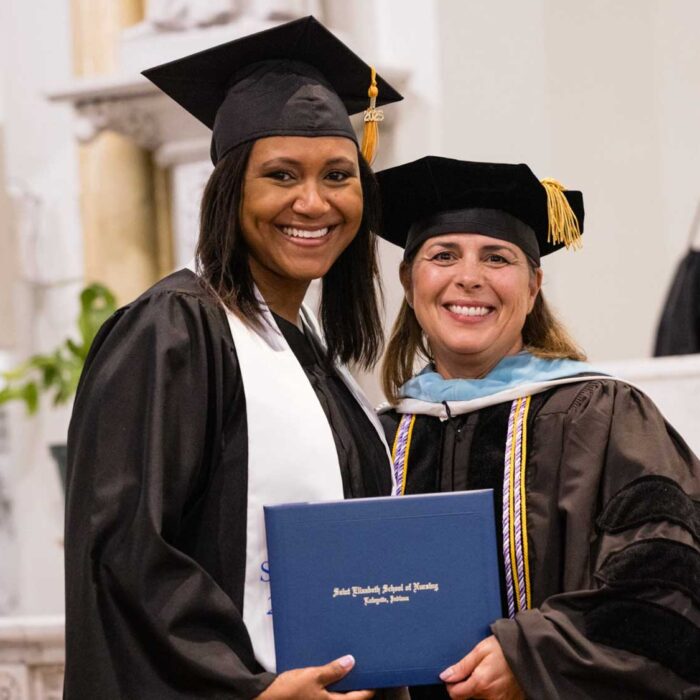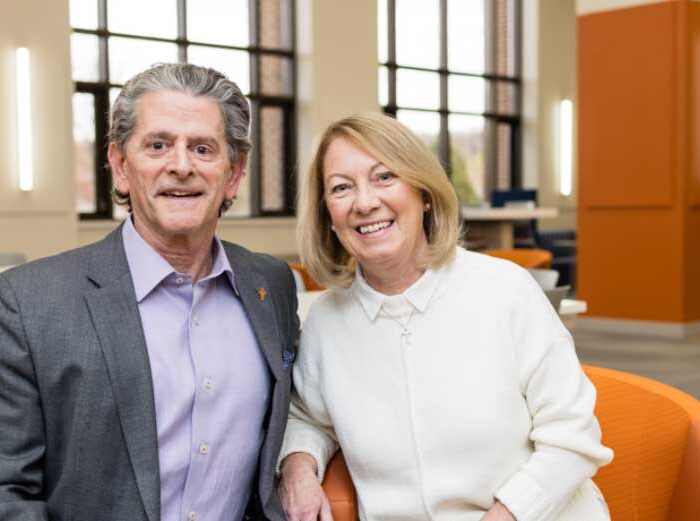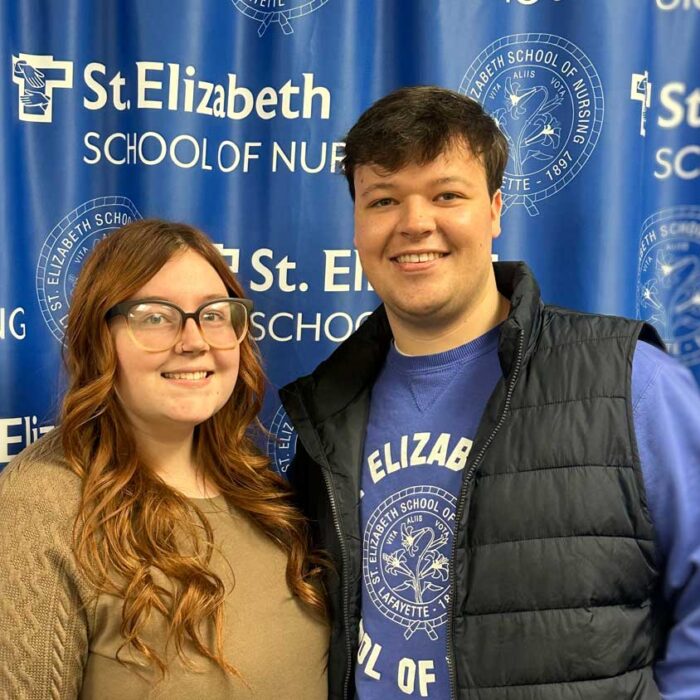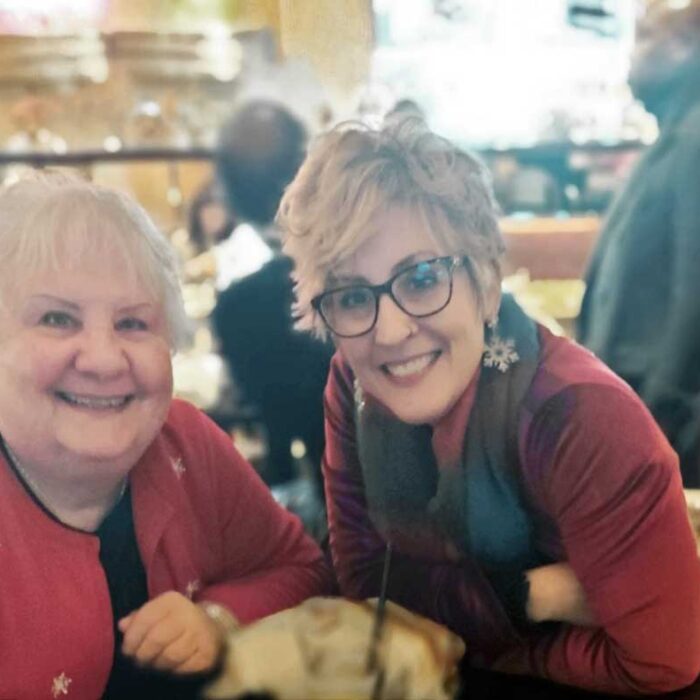The SIM Lab is a busy hive of activity and a natural extension of St. Elizabeth’s holistic curriculum. Here, classwork and clinical practice intertwine with opportunities that come as close as “humanly” possible to providing healthcare to real patients. Procedures and tasks are programmed into the medical manikins. Robotic intelligence that can blink its eyes as a voice narrates the surrogate patient’s words from a control booth. Teamwork, high-level thinking and problem-solving are significant components to students learning what acute patient care entails in the safest, most supportive environment possible. Whether replicating critical or routine care, these scenarios extensively train learners to be prepared in the field, internalize information and finally execute a treatment plan.
Healthcare education has ramped up a notch with the latest iteration of medical manikins. Patient simulation has come a long way since the first CPR training manikin, Resusci Anne, hit the scene in the 1960s. Meeting the dynamic needs of today’s patients within the complexity of healthcare includes incorporating technology that can pinpoint student strengths and areas to improve upon with real-time, virtual feedback. As nursing education has evolved, so too has the way students learn. High-risk situations equal zero chances of real-life mortality within the confines of the SIM Lab. Students learn from errors and successes on plastic patients knowing the manikins will survive to help them learn another day.
Along with Maggie, you’ll find additional manikins. SIM Junior is a child manikin who stands in for pediatric patients four to eight years of age. Junior is part of two ongoing simulations for two different courses. SIM Newbie is the bionic bouncing baby of the group. Newbie has an umbilical cord that can be cut, and medications can be administered into the umbilicus area. Each artificial patient comes complete with heart, lung and bowel sounds. The manikins are defibrillator compatible, meaning each one can be shocked “back to life.”
Head-to-toe assessments are a critical first step in providing patient data to the healthcare team. The unique design of the medical manikins allows faculty to train students in emergent, clinical and typical nursing backdrops. Faculty and the lab technician collaborate in programming various symptoms that lead students on the hunt toward collecting data and forming a diagnosis. From future RNs knocking on the door and introducing themselves to abrupt medical emergencies, these simulated patient encounters seem nothing but real.
Lauria Lanke coordinates the St. Elizabeth School of Nursing SIM Lab. Her computer technology background and medical experience made her the perfect consult when formulating the lab’s layout and goals for learning. “I do whatever research and programming are necessary to create real-life simulations so students can meet critical criteria to care for patients properly.”

The manikins under Lanke’s watchful eye are healthcare simulation hubs. These modern-day techno miracles in the world of higher learning can range from low-fidelity to high-fidelity. Low-fidelity manikins teach IV skills or CPR. Mid-range medical manikins offer training skills with minimal computerized components. High-fidelity manikins, like Maggie who is programmed for impending motherhood, raise the bar in healthcare education.
After planning sessions with each professor regarding the critical criteria to cover and skills students must gain, Lanke goes to work programming and creating special effects. “Our SIM Lab manikins mimic many of the physiological processes of the body. They can literally produce hundreds of sounds that nurses need to be keenly aware of. Sounds that range from what an irregular bowel may sound like to the lungs in all four quadrants, front and back,” she explains. When working with real patients, the sounds nurses hear recall to what they learned in the lab.
Taking a pulse, treating head wounds, dispensing medication and addressing abdominal issues are among the limitless ways manikins are utilized. “Currently, I’m in the process of creating a simulated stomach with actual stomach content for students to practice inserting a feeding tube into the belly,” Lanke shares. “It’s amazing the things we can create to give students the realest experience possible.”

With a critical eye and a heart for guiding nursing students, Lanke knows St. Elizabeth sends confident graduates into the healthcare world that are ready to provide patient care on day one. St. Elizabeth is driven to provide students with the tools they need to be successful as professionals and individuals. “Everyone at St. Elizabeth truly wants the best for our students. There is a depth of care on a personal level that fuels the staff and faculty’s desire to see them succeed beyond the classroom.”
Investing in nursing education of this magnitude is no small feat. The SIM Lab is a sign of how committed St. Elizabeth School of Nursing Director Michelle Gerrety, EdD, MSN, RN is when it comes to educating tomorrow’s nurses. “The best interests of our students are always in the forefront of my mind. I’m proud of our exemplary staff who go above and beyond to lead our students down the road to becoming the best nurses possible,” Gerrety shares.
Michelle Gerrety isn’t the only one with a deep passion for educating nurses. Years ago, with only a semester left in nursing school, a car accident derailed Lanke’s studies. After a long recovery, a newfound love of computer science led her to earn her degree in technology with a focus on web design and computer networking. Little did Lanke know then that her dream of a nursing career would one day collide with this technological skill set. When you hear the excitement in her voice about her position at the school, it is evident Lanke is where she was destined to be. “It is truly wonderful to work with a school that supports its students. I have been blessed to be at St. Elizabeth supporting new nurses from the beginning of their education. The learning curve is steep on the path to becoming a nurse, and I have nothing but grace to meet students where they are as they head toward where they are destined to be.”
As seen in the The Lamp fall 2020 issue

